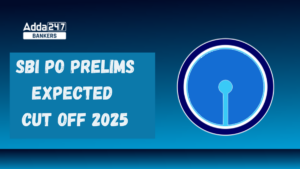Dear Students,
Quantitative Aptitude Questions for IDBI Executive Exam
Quantitative Aptitude Section has given heebie-jeebies to the aspirants when they appear for a banking examination. As the level of every other section is only getting complex and convoluted, there is no doubt that this section, too, makes your blood run cold. The questions asked in this section are calculative and very time-consuming. But once dealt with proper strategy, speed and accuracy, this section can get you the maximum marks in the examination. Following is the quiz on Quantitative Aptitude to help you practice with the best of latest pattern questions.
Q1. The average weight of 45 students in a class is 52 kg. 5 of them whose average weight is 48 kg leave the class and other 5 students whose average weight is 54 kg join the class. What is the new average weight (in kg) of the class?
Q2. A dishonest grocer professes to sell pure butter at cost price, but he mixes it with adulterated fat and thereby gains 25%. Find the percentage of adulterated fat in the mixture assuming that adulterated fat is freely available.
(a) 20%
(b) 25%
(c) 33.33%
(d) 40%
(e) 27.5%
Q3. Madan pays income tax at the rate of 10%. If his income increased by 10% and his tax rate increase to 15%, His net income would increase by Rs. 350. What is Madan’s income?
(a) Rs. 8000
(b) Rs. 10,000
(c) Rs. 12,000
(d) Rs. 14,000
(e) Rs. 12500
Q4. The percentage profit earned by selling an article for Rs. 1920 is equal to the percent loss incurred by selling the same article for Rs. 1280. At what price should the article be sold to make 25% profit?
(a) Rs. 2000
(b) Rs. 2200
(c) Rs. 2400
(d) Rs. 1750
(e) Rs. 2250
Q5. A dealer offers a cash discount of 20% and still makes a profit of 20%, when he further allows 16 articles to a dozen to a particularly sticky bargainer. How much per cent above the cost price were his wares listed?
(a) 100%
(b) 80%
(c) 75%
(d) 66/3 %
(e) 125%
Q6. The difference between the simple interest received from two different sources on Rs. 1500 for 3 years is Rs. 13.50. The difference between their rates of interest is:
(a) 0.1%
(b) 0.2%
(c) 0.3%
(d) 0.4%
(e) 0.5%
Q7. The ratio of the price of two houses A and B was 4 : 5 last year. This year, the price of A is increased by 25% and that of B by Rs. 50000. If their prices are now in the ratio 9 : 10, the price of house A last year was :
(a) Rs. 3,60,000
(b) Rs. 4,50,000
(c) Rs. 4,80,000
(d) Rs. 5,00,000
(e) Rs. 385000
Q8. Two pipes A and B can fill a cistern in 6 minutes and 7 minutes respectively. Both the pipes are opened alternatively, first pipe A and 2nd pipe B for 1 minute each. In what time will they fill the cistern.
Q9. Raju can do a piece of work in 10 days, Vicky in 12 days and Tinku in 15 days. They all start the work together, but Raju leaves after 2 days and Vicky leaves 3 days before the work is completed. In how many days is the work completed?
(a) 5 days
(b) 6 days
(c) 7 days
(d) 8 days
(e) 9 days
Q10. A plane left 30 min later than its scheduled time to reach its destination 1500 km away. In order to reach in time it increases its speed by 250 km/hr. What is its original speed?
(a) 1000 km/hr
(b) 750 km/hr
(c) 600 km/hr
(d) 800 km/hr
(e) 650 km/hr
Directions (11-15): Given below is the table which shows the 5 products sold by a manufacturer, % discount offered on marked price and % profit earned on cost price.
Q11. What is the ratio of Marked price and cost price of article B.
(a) 5 : 3
(b) 4 : 3
(c) 7 : 4
(d) 9 : 5
(e) 7 : 6
Q12. If total profit on selling 5 units of E type product is 210, then find the marked price per unit of article E.
(a) 126
(b) 175
(c) 189
(d) 168
(e) 133
Q13. If cost price of product A and D is same, then find the ratio of marked price of product A to the marked price of product D.
(a) 255 : 256
(b) 143 : 144
(c) 178 : 189
(d) 160 : 163
(e) 233 : 224
Q14. If marked price of article A is 180, then find the cost price of article A.
(a) 64
(b) 72
(c) 128
(d) 122
(e) 144
Q15. Percentage of profit earned on product E is what percent more than percentage of profit earned on product B.




 GA Capsule for SBI Clerk Mains 2025, Dow...
GA Capsule for SBI Clerk Mains 2025, Dow...
 The Hindu Review October 2022: Download ...
The Hindu Review October 2022: Download ...
 SBI PO Prelims Expected Cut Off 2025, Ch...
SBI PO Prelims Expected Cut Off 2025, Ch...





